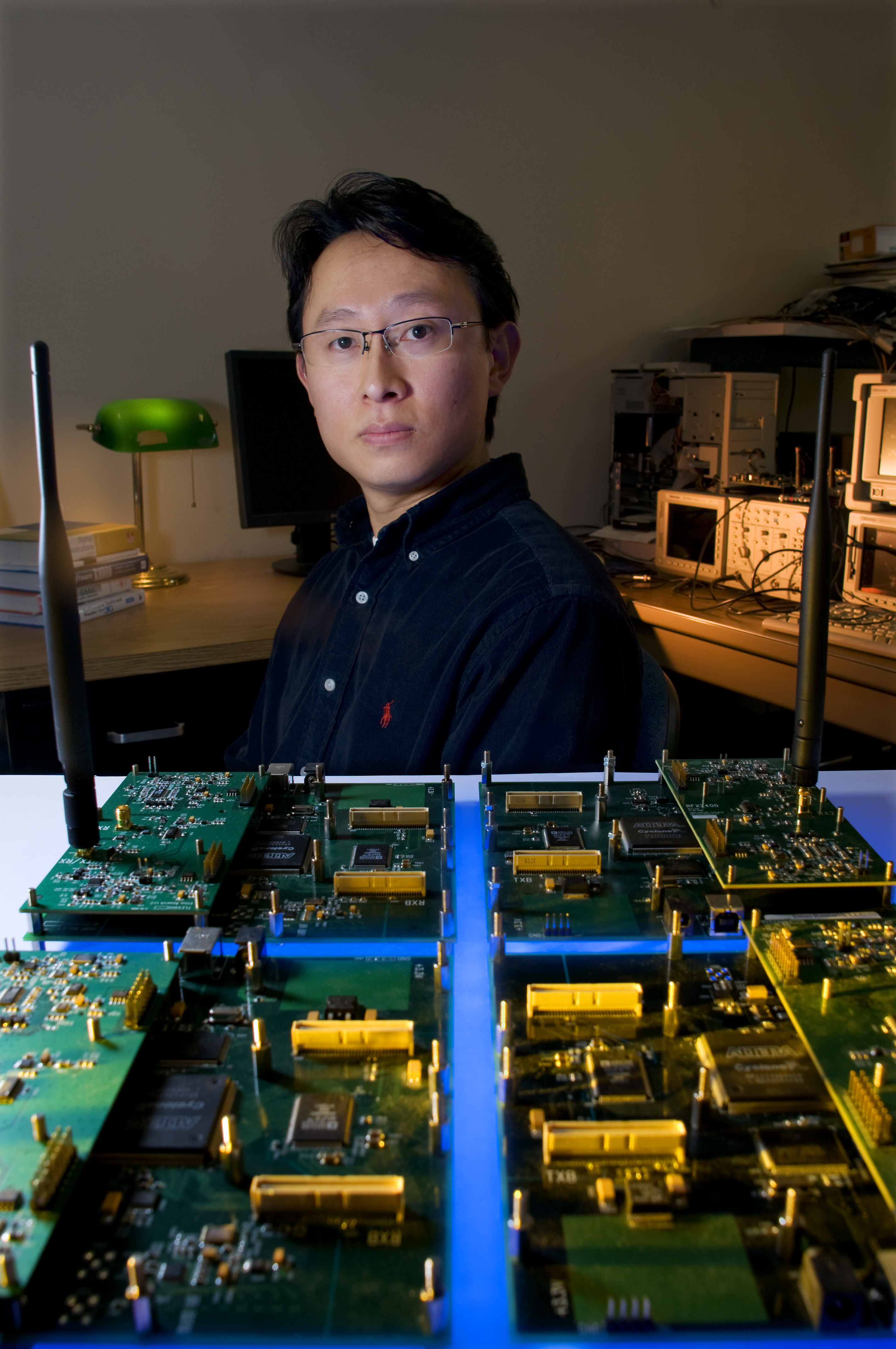Virginia Tech and partner universities to study problems in broadband wireless access and security

Virginia Tech is part of a five university member group being funded by the National Science Foundation to expand access to and security of the nation’s broadband wireless network. The university consortium will work with private industry as it carries out research.
The consortium is the latest effort of the Virginia Tech College of Engineering as it remains a leading national research institute of wireless technologies and cyber security, critical to the nation’s economy and security.
Virginia Tech will receive $300,000 during a five-year period for its research efforts in the public/private consortium known as the Broadband Wireless Access & Applications Center, or BWAC for short. Joining Virginia Tech in the consortium are Auburn University, Notre Dame University, the University of Arizona, and the University of Virginia.
The group was formed this past March and will operate as an Industry-University Cooperative Research Center, working with and receiving additional funding from industry. The group’s research efforts will be overseen by the National Science Foundation.
Serving Virginia Tech’s sire director for the center will be Jung-Min “Jerry” Park, an associate professor in the Bradley Department of Electrical and Computer Engineering. He will be joined by faculty members Jeffrey H. Reed, holder of the Willis G. Worcester Professorship; R. Michael Buehrer, professor; Luiz DaSilva, professor; Carl Dietrich, research associate professor; Allen MacKenzie, associate professor; and William Tranter, Bradley Professor of Communications; all of electrical and computer engineering.
Teaming with industry partners, the Broadband Wireless Access & Applications Center will pursue large-scale research programs dedicated to designing flexible, efficient, and secure wireless networks that are both novel and meet broadband communication needs for business and homes, said Park. An Industry-University Cooperative Research Center status opens doors for academics and industry experts to share research and in-development technologies, and provide real-life in-lab work experience to students conducting research at the member universities, Park said. Twenty industry partners are planned.
Each university in the center site has a specific research thrust where in-house experts will focus on individual areas of the larger project. Park, Reed, and their collaborators will study problems in spectrum enforcement, security, and privacy in spectrum sharing; mobility support for opportunistic spectrum access; co-design and coexistence of heterogeneous wireless systems; and security issues in cognitive radio networks.
Leading the full consortium is Tamal Bose, head of the University of Arizona’s Department of Electrical and Computer Engineering who previously worked as a professor with the Bradley Department of Electrical and Computer Engineering at Virginia Tech, and served as associate director of Wireless@VT, which is headed by Jeffrey Reed.
Virginia Tech has long been well-known for its research into wireless technology, dating back to the 1960s with development of technology that has served as the basis for such companies as Direct TV, Iridium Satellite, and Globalstar.
Wireless@Virginia Tech, a research center based at the university’s Institute for Critical Technology and Applied Science and headed by consortium member Reed, had made headlines for its work in the field.
Reed was among several Virginia Tech researchers in 1993 to win a $1.7 million contract from the Defense Advanced Research Projects Agency to develop revolutionary approaches to wireless communications, and he serves on White House’s Council of Advisors on Science and Technology Working Group.




